
In the final six weeks before voters had their say on Prop 8 in California in 2008, polls showed the likely outcome went from “too close to call” to “shit, we’re screwed.” How come?
A fat new analysis of the polling data claims to have some answers. Turns out it wasn’t black voters at fault, but white Democrats scared their children would be taught about The Gay, writes Dave Fleischer of the LGBT Mentoring Project.
After the election, a misleading finding from exit polls led many to blame African Americans for the loss. But in our new analysis, it appears that African Americans’ views were relatively stable. True, a majority of African Americans opposed same-sex marriage, but that was true at the beginning and at the end of the campaign; few changed their minds in the closing weeks.
The shift, it turns out, was greatest among parents with children under 18 living at home — many of them white Democrats.
The numbers are staggering. In the last six weeks, when both sides saturated the airwaves with television ads, more than 687,000 voters changed their minds and decided to oppose same-sex marriage. More than 500,000 of those, the data suggest, were parents with children under 18 living at home. Because the proposition passed by 600,000 votes, this shift alone more than handed victory to proponents.
What caused these folks to change their minds? The magical technology called “television.”
Perhaps it shouldn’t be a surprise. The Yes on 8 campaign targeted parents in its TV ads. “Mom! Guess what I learned in school today!” were the cheery-frightening first words of the supporters’ most-broadcast ad. They emerged from the mouth of a young girl who had supposedly just learned that she could marry a female when she grew up. Among the array of untrue ideas that parents could easily take away: that impressionable kids would be indoctrinated; that they would learn about gay sex; that they would be more likely to become gay; and that they might choose to be gay. California voters, depending on where they lived in the state, were exposed to the Yes on 8 ads 20 to 40 times.
The lesson: It’s not enough to make the case for same-sex marriage. It’s also important to arm voters — particularly parents — against an inevitable propaganda attack. And it’s crucial to rebut lies so parents don’t panic.
And despite the notion that the close vote on Prop 8 — 52 to 48 percent — would mean it’d be easy to repeal the thing two (and now four) years later, it turns out voter idiocy (read: “confusion”) actually helped the No On 8 side.
How about we take this to the next level?
Our newsletter is like a refreshing cocktail (or mocktail) of LGBTQ+ entertainment and pop culture, served up with a side of eye-candy.
It’s true that the official election results — 52% to 48% — appeared quite close. But the truth is more complicated. The data we analyzed show that the No on 8 campaign benefitted from voter confusion.
Polling suggests that half a million people who opposed same-sex marriage mistakenly voted against the proposition. They were confused by the idea that a “no” vote was actually a vote for gay marriage. This “wrong-way voting” affected both sides, but overwhelmingly it helped the “no” side. Our analysis suggests that the division among California voters on same-sex marriage at the time of Proposition 8 was actually 54% to 46% — not so close. We are actually 1 million votes away from being able to reverse Proposition 8.
And while this data dump is useful, it’s both disheartening and hopeful. It shows people who voted against same-sex marriage weren’t “motivated by hate,” but by misinformation. This bodes well for campaigns moving forward, where more effort can be placed on debunking the myths of marriage discrimination supporters. In 2008, the No On 8 side instead relied mostly on warm fuzzy feel-good messages about families and kids. Instead, perhaps, we should be scaring voters into imagining what would happen to their families if their gay neighbors can’t get married: They’ll move somewhere they can, lower property values, and take Pottery Barn with them.
Update: Love Honor Cherish, which attempted a 2010 repeal of Prop 8, has some major problems with the report. The group says in an email blast:
The new report on Proposition 8 by Dave Fleischer of the Los Angeles Gay & Lesbian Center released today is severely flawed. Although many aspects of the report are helpful and constructive, the report makes the assertion that “If all voters had correctly understood how to vote to express their opinion on same-sex marriage, Prop 8 would have passed 54% to 46%, by a 1,000,000 vote margin. To reverse the result, we start out 1,000,000 votes behind.”
This assertion is wrong and unsupportable,” stated Love Honor Cherish Board Chair Tom Watson. “As set out in the briefing by renowned political polling firm David Binder Research, which was also released today, ‘wrong-way voting’ had no effect ‘on the outcome of the Proposition 8 ballot initiative.'” “It is also misleading since repeated polls since the 2008 election have demonstrated increased support for same-sex marriage in California. In the PPIC’s March 2010 survey of Californians, 50% support same-sex marriage and only 45% oppose.”
The report further asserts, based on its wrong-way voting analysis, that “it is possible that it will take longer to return to the ballot and win than some believed when 2010 and 2012 were the only options given serious consideration.”
“We are left to wonder why Fleischer, who is not an expert in statistics or polling, would put forth such an analysis,” said Watson. “We can only surmise that the report is designed to benefit those who favor waiting before going to the ballot to repeal Prop 8.”
Don't forget to share:



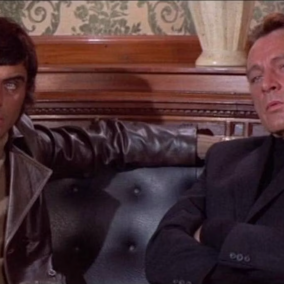
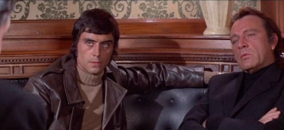


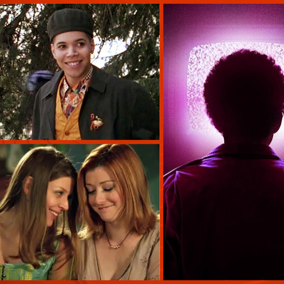
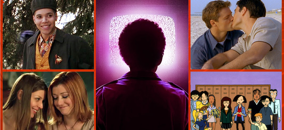










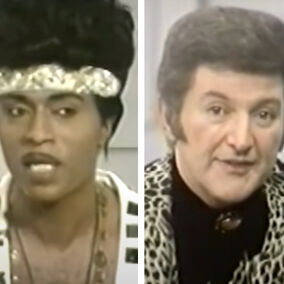
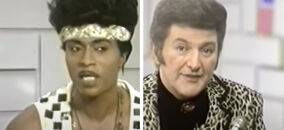






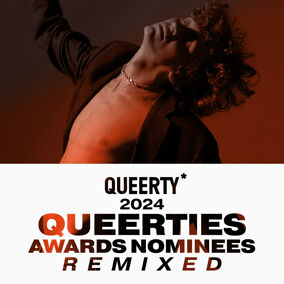
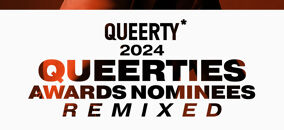



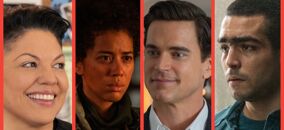
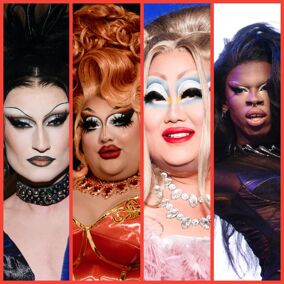





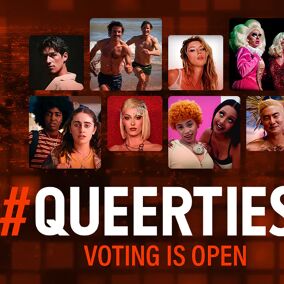
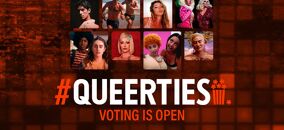
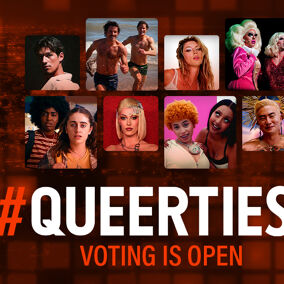
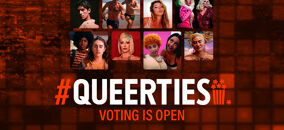
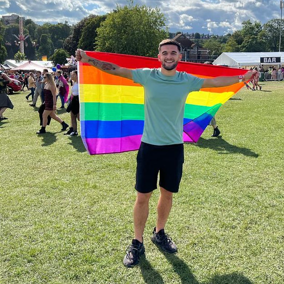
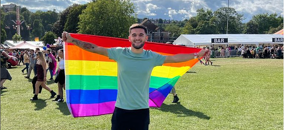
















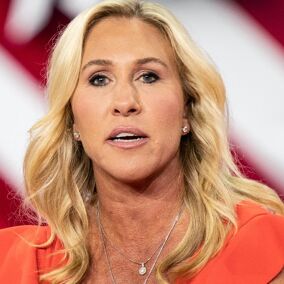



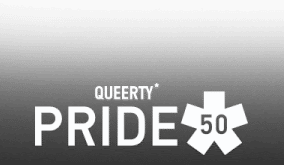



Tallskin
Just shows the lingering effects of christianity on our culture, it gets really deep into the psyches of people, even those who consider themselves agnostics or non-believers.
Religion is like the bad smell left in the bathroom after a particularly heavy shit, even though you’ve flushed and think it’s gone, that bad smell tends to linger.
The root of homophobia around the world is religion, never underestimate its evil effects. And religion provides a constant drip-drip re-inforcement of this, preying on people’s fears.
Cam
So it’s gone from being the fault of
Blacks, Latinos and Mormons, to being the fault of Blacks, Whites, Latinos, and Mormons.
We lost it, hopefully we’ll win it next time.
Michael
AMEN tallskin! AMEN!
😉
the crustybastard
Democrats against gay rights?
Well, this comes as quite a shock.
(No, not really.)
ron
God, it goes to show how easily manipulated many people can be. I hate to say it, but most people are pretty stupid.
REBELComx
Never underestimate the power of stupid people in large numbers… especially if they are being coerced by only slightly more intelligent hate mongers.
robert
That’s democracy for you. You have to take the bad with the good.
Tallskin
@Robert – rather it shows the power of allowing the great unwashed, smelly majority to vote on the rights of minorities
Nothing wrong with democracy per se, just that too much given to an uneducated and fearful majority is bad. Referendums of such a nature as Prop 8 are insane, and is mere mob rule.
Dictators use referendums to control people and gain endorsement for their rule.
Cathy Renna
@Cam:
hope is a palce in arkansas, if we don’t learn from our mistakes and do the hard work we will never win
Cathy Renna
@Cam:
hope is a place in arkansas, if we don’t learn from our mistakes and do the hard work we will never win
PLAYS WELL WITH OTHERS
Once again the Gays are the only group allowed to be used as absolute punching bags by the majority No other minority has had their equal rights be subject to vote by the general electorate…….
If they allowed votes on rights for any other minority to be subjected to the majority elections in this country would still to this very day most likely be open only to white, wealthy, males……..
wannabegay2
they should make a study about other 2 propositions on the ballot that year: how come voters approved for chickens to have enough room to spread their wings and disapproved of parents being notified if their underaged daughter has an abortion?
GregorVonK
I have to wonder if the “they already have the same rights as us” argument played a significant role here–by letting voters of reasonably good will RATIONALIZE their “yes” votes. It certainly seemed to be part of the “Yes On 8” campaign at any rate–that gay California couples already enjoyed the same rights and priveleges as married couples via domestic partnerships.
I’m sure there were some who were persuaded that it “was all about a word” and that no real harm would be done to their (many, I’m sure) gay friends and relatives.
I suspect lots of people will buy into a “separate but equal” scenario, if they can convince themselves that it will be “equal enough.”
OrchidIslander
@ron: I’m not sure that most people are pretty stupid, but a sizeable number are. Which, by the way, includes many gay people who fervently believed – and wanted to believe – that the loss on Prop 8 was caused solely by (the relatively small number of) black California voters.
D'oh, The Magnificent
Poll confirms what I thought at the time when I saw the LA Times article pointing out that a school teacher, who should have known better, claiming she voted in favor of Prop 8 because she was afraid gays were going to come into the school system.
By the way, I don’t buy the argument that this is what motivated them. They are bigots in search of an excuse. “Doing it for the The children, God and country” have justified a lot of atrocities in history.
Chitown Kev
Yet another example of the rampant homophobia in the white community!
Phil
Man, stupid, ignorant or misinformed people really should abstain from voting. I mean, if you don’t have a clear idea about what you’re making a decision about, -why the hell are you making this decision for others-?
David
It saddens me to see that even the gay press won’t talk about the evidence that Prop 8 was stolen.
http://www.wasprop8straight.org/
ForeverGay
BS. Haterosexual-only marriage supporters are motivated by hate. This is just another attempt to wash haterosexuals’ hands clean of the oppression they cause. Haterosexuals want direct control over the lives of gay people.
Chitown Kev
@David:
I’ve read about that here and there.
Bob
Sure…always blame the white people. We are always the villains. It is ironic though, that the picture used in this article of the people against gay marriage are all Asian….
Robert from ATL
@Bob:
I guess you missed the anti-black homo-lynch squads that materialized after Prop 8 passed.
Chitown Kev
Yeah, at least with black folk in my experience (all 43 years of it) you pretty much know where you stand one way or the other.
Not so with white Democratic Californians, evidently.
L.
The “voting no because you think yes” thing reminded me of all those heavily Jewish counties voting for Buchanan because of that stupid “butterfly” ballot design.
We all know how well *that* one ended.
Joe
We run shitty campaigns. The last great campaign was the 1978 Briggs initiative. Harvey Milk took the campaign from the “elites” and pioneered a very successful model. It has, since, been ignored.
The most important thing we must do is counter the christian lies about us. It is infuriating because they always do it. Thus, we have no reason to be surprised. We should be ready with facts the way they were in 1978.
Here’s a link to an article that contrasts the 1978 Brigg’s campaign to the prop 8 campaign:
http://www.sfbaytimes.com/?sec=article&article_id=10080
Robert from ATL
@Joe:
I agree with this. The whole idea to “don’t give attention to the hatemongers” may work on a school yard but not national politics. Every smear and every charge must be responded to in as fast and as strong a manner as possible. And in contrasting the truth with the lies, you aren’t defending yourself, you are on the offense.
MickW
I’ll never understand why white people are so homophobic, every time you see a gay person in the media they are white so they should be comfortable with them by now.
adam
@Bob: I’m pretty sure exit polling showed Asian-Americans to have voted against it… The only ethnic group that voted for were African-Americans. The polling was likely flawed, though, obviously, since it suggested it would be defeated.
John (CA)
@Chitown Kev: Well, what did you expect?
Their backward culture is all based around deception and treachery.
Cam
One thing I do think is interesting is that we seem to be the only community that blames itself when we are denied our civil rights.
Running a bad campaign in CA. was stupid. however, the real blame lies with the bigots and liars that pretend to be these liberal open minded people then rush off to the voting booths to deny us our rights.
Justin
@John (CA): @John (CA):
Their backward culture?
tjr101
America voted for Bush twice, no surprise here!
RaymondKevin
It’s sad, yet very telling that nearly two years after November 2008, African-Americans are still being blamed for the passage of Prop 8.
It’s also sad, yet very telling that this website helps perpetuates that myth.
The reality of white voters motivated by the religious right was pointed out the night of the election and days afterwards (now months/years after), yet people still demonize the Black Community.
http://www.huffingtonpost.com/raymond-leon-roker/stop-blaming-californias_b_142018.html
http://www.pfaw.org/issues/equality-for-all/blaming-black-voters-for-prop-8-loss-wrong-and-destructive
Hopefully, Judge Vaughn Walker’s decision tomorrow will overturn Prop 8.
Bill Perdue
Those bigoted euroamericans who voted against us were galvanized and emboldend by Obama’s ‘gawd’s in the mix’ bigotry which was used by Yes on 8 to swing the vote in the last weeks of the campaign.
[img]http://www.boxturtlebulletin.com/btb/wp-content/uploads/2008/11/fieldpoll.png[/img]
Queer Supremacist
@Tallskin: You just made the case not only against the Christo-Islamic menace, but against democracy, and for the War on Terrorism.
Perhaps we need to dissolve the state of California and let the surrounding states and Mexico help themselves to what they want.
B
No. 33 · RaymondKevin wrote, “It’s sad, yet very telling that nearly two years after November 2008, African-Americans are still being blamed for the passage of Prop 8.”
Read http://www.ncsu.edu/stud_affairs/glbt/pdfs/Prop%208%20Report.pdf which shows that the Black vote in favor of Proposition Eight was 58%, with the margin by which Prop 8 won being due not to race but mostly due to a higher level of attendance at religious services.
The numbers in favor of Prop 8 were 49% for whites, 58% for blacks, 59 percent for latinos/hispanics, and 48% for asians,
with the percent of the voters in each group being 68%, 7%, 14%, and 7% respectively.
Since race/ethnicity was not an important factor (shown via a multivariate analysis – the higher levels of support for some ethnic groups were due to a higher number of people in those groups attending religious services), I don’t see how this data blames African Americans.
One exit poll was shown to be way off – the one reporting that 70% of black voters were in favor of Proposition Eight.
Bill Perdue
@B: Here’s a clear example of post Prop 8 racism from ‘B’.
@B: says “Proposition Eight passed by 52% of the vote, and Blacks accounted for nearly 30% of that 2% margin in favor of Proposition Eight. That isn’t enough to “tip the scale”, but it is a pretty significant chunk of it.”
The NLGTF report on this question says “According to this survey, blacks’ support for the ballot measure was much lower than reported by Election Day exit polls” the exact opposite of the claim that the Black vote was a “pretty significant chunk of it.”
When evaluating the overall effect of the African American vote, which was too small to swing the vote one way or the other, it should be as a percentage of the total vote on Prop 8, instead of wildly exxagerating it’s importance by comparing it to a mere 2% of the total vote.